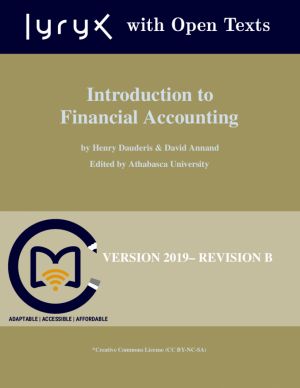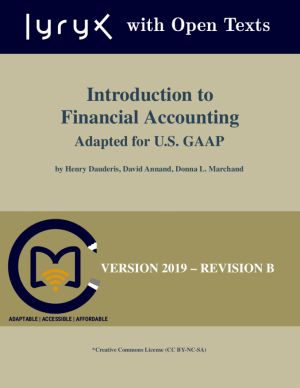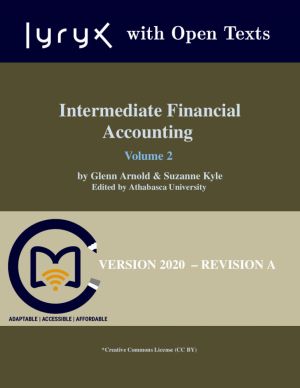
Introduction to Financial Accounting is intended for a first course in introductory financial accounting. It has been extensively edited by Athabasca University and reflects current International Financial Reporting Standards (IFRS). A corporate approach is utilized versus beginning with a sole proprietorship emphasis and then converting to a corpo...

Introduction to Financial Accounting: U.S. GAAP, was intended for a first course in introductory financial accounting. It focuses on core introductory financial accounting topics that match pre-requisite requirements for students advancing to intermediate financial accounting. A corporate approach is utilized versus beginning with a sole proprietor...

Intermediate Financial Accounting Volume 2 developed in collaboration by Athabasca University and Lyryx, is intended for the second of two in Intermediate Financial Accounting courses. It presumes that students have already completed the Introductory Financial Accounting, and the first Intermediate Financing Accounting course. The textbook reflects...

This book has been specifically created to make it easier for professors to offer a law school course on global corruption. It is issued under a creative commons license and can be used for free in whole or in part for non-commercial purposes. The first chapter sets out the general context of global corruption: its nature and extent, and some views...

This open book adopts a rights-based approach to shed light on the different legal and policy instruments that have been developed to implement circular migration policies in the EU, and their consequences for the rights of migrant workers. It contributes to the understanding of the meaning of this concept in general and in the EU, as well as speci...

The increasing capacity of digital networks and computing power, together with the resulting connectivity and availability of "big data", are impacting financial systems worldwide with rapidly advancing deep-learning algorithms and distributed ledger technologies. They transform the structure and performance of financial markets, the serv...
